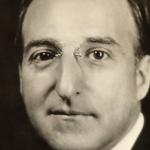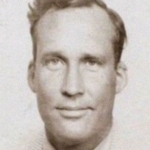On the warm Sunday afternoons
And every evening in the spring and Summer
When the night hurries the late home-corner
And the air grows softer, and scraps of tunes
Float from the open windows and jar
When the city noises commingle and melt
With a restless something half-seen, half-felt—
I see them always there,
Upon the low, smooth wall before the church;
That row of little girls who sit and stare
Like sparrows on a granite perch.
They come in twittering couples or walk alone
To their gray bough of stone,
sometimes by twos and threes, sometimes as many as five—
But always they sit there on the narrow coping
Bright-eyed and solemn, scarcely hoping
To see more than what is merely moving and alive. . .
They hear the couples pass; the lisp of happy feet
Increases and the night grows suddenly sweet. . .
Before the quiet church that smells of death
They sit.
And life sweeps past them with a rushing breath
And reaches out and plucks them by the hand
And calls them boldly, whispering to each
In some strange speech
They tremble to but cannot understand.
It thrills and troubles them, as one by one,
The days run off like water through a sieve;
While, with a gaze as candid as the sun,
Poignant and puzzled and inquisitive,
They come and sit,—
A part of life and yet apart from it.

















Comment form: